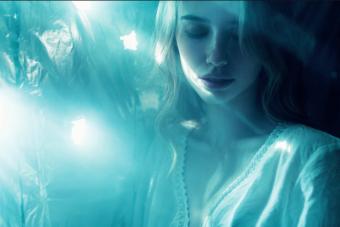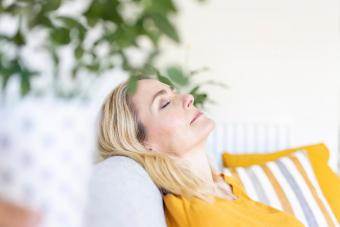
Alcohol and insomnia problems often go hand-in-hand, especially as people with insomnia use alcoholic beverages to induce sleep. Dr. David Sack, CEO of Promises Treatment Centers, has taken time to answer a few questions about the relationship between alcohol and insomnia.
Dr. David Sack
Dr. Sack has extensive experience in the fields of addiction, neuroscience, insomnia and psychiatry. His research as Senior Vice President for Clinical Research for Comprehensive Neurosciences includes alcohol dependency and insomnia as well as cognitive disorders, depression and schizophrenia. He served as senior clinical scientist at the National Institute for Mental Health where he investigated topics including circadian rhythms, affective disorders and neuroendocrinology.
He is board certified in:
- Psychiatry
- Addiction Medicine
- Addiction Psychiatry
Dr. Sack's research offers insight into the connection between insomnia and alcohol and he shares some of this insight in this LoveToKnow interview.
Interview with Dr. David Sack
What inspired you to help people overcome addictions?
When I started working in psychiatry, I realized that many of my patients with depression, anxiety and bipolar disorder were not getting better because they also had drug or alcohol problems. Unless they could be helped to stop using drugs, their other problems were not going to get better.
Is there a connection between alcohol and insomnia?
Insomnia is one of the most common problems experienced by patients with alcohol and other drugs problems. Sleep disorders increase the risk of drug abuse. The sleep problems caused by alcohol can last for more than a year after a person stops drinking. Nearly half of abstinent alcoholics have frequent sleep interruptions and reduced slow wave sleep. This is especially significant since abstinent alcoholics with sleep difficulties are three times more likely to relapse to alcohol than those without sleep problems.
How does long term alcohol use affect sleep patterns?
In the brain, alcohol has a depressant effect but the duration of its effects are brief. As the alcohol wears off sleep becomes disrupted. Over time, the individual who is abusing alcohol is unable to fall asleep if they are not drinking. Alcohol also worsens other sleep disorders, in particular sleep apnea syndrome. In sleep apnea, a person's sleep is repeatedly interrupted throughout the night because their airway closes and they can't breathe. Alcohol increases this problem.
Can moderate drinking interfere with sleep?
Even moderate drinking can disrupt normal sleep patterns and sleep architecture. When people ingest alcohol before they go to sleep, they experience sleep as less restful and less restorative.
Does Promises Treatment Center have any self-assessment tests for possible alcohol abuse?
Yes. We provide our Self-Assessment of Alcohol Use online for anyone who is interested in getting ann initial evaluation of their particular situation.
Where can readers learn more about alcohol and its effect on insomnia?
There are several good articles including:
- Alcohol and Sleep
- Insomnia, Self-Medication and Relapse to Alcoholism
- Impaired Sleep in Alcohol Misusers and Dependent Alcoholics and the Impact Upon Outcome
Getting Help for Alcohol and Insomnia
Special thanks to Dr. Sack for taking time out of his hectic schedule to discuss insomnia and alcohol. People who have sleep disorders often overlook this important issue and we hope that his information inspires people to take steps toward recovery.
Insomnia is often an indicator of an underlying medical condition and it can be an indicator of substance abuse. Self-medicating is a difficult problem to overcome alone, and getting proper treatment for alcohol abuse is critical. Simply taking a few moments for self-assessment can be an important first step in recognizing a drinking problem.







